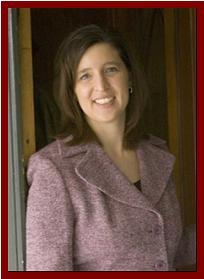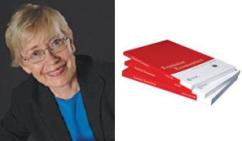Women’s Situation in Economics
Posted by The Situationist Staff on May 3, 2007
 Several recent articles that all seem interestingly related to women in Economics are worth highlighting.
Several recent articles that all seem interestingly related to women in Economics are worth highlighting.
First, a story in The Observer this week summarized a study on the effect of feminine names:
Parents are being warned to think long and hard when choosing names for their babies as research has discovered that girls who are given very feminine names, such as Anna, Emma or Elizabeth, are less likely to study maths or physics after the age of 16, a remarkable study has found.
Both subjects, which are traditionally seen as predominantly male, are far more popular among girls with names such as Abigail, Lauren and Ashley, which have been judged as less feminine in a linguistic test. The effect is so strong that parents can set twin daughters off on completely different career paths simply by calling them Isabella and Alex, names at either end of the spectrum. A study of 1,000 pairs of sisters in the US found that Alex was twice as likely as her twin to take maths or science at a higher level.
 According to David Figlio, the economist who authored the study, the effect of names is largely the consequence of the expectations created by a name. This is old news, revealed in a new way. At least since Rosenthal & Jacobson’s famous 1968 study, described in their book, The Pygmalion in the Classroom, social psychologists (among others) have recognized the powerful effect of expectations and self-fulfilling prophecies in the classroom. In that classic study, the act of labeling some students “bloomers” dramatically influenced their performance on I.Q. tests. What this more recent study suggests is that there is a labeling effect in our names. “Anna” just doesn’t say “math bloomer” the way that “Chris” does.
According to David Figlio, the economist who authored the study, the effect of names is largely the consequence of the expectations created by a name. This is old news, revealed in a new way. At least since Rosenthal & Jacobson’s famous 1968 study, described in their book, The Pygmalion in the Classroom, social psychologists (among others) have recognized the powerful effect of expectations and self-fulfilling prophecies in the classroom. In that classic study, the act of labeling some students “bloomers” dramatically influenced their performance on I.Q. tests. What this more recent study suggests is that there is a labeling effect in our names. “Anna” just doesn’t say “math bloomer” the way that “Chris” does.
As if that story weren’t depressing enough, the online version had nestled within it the following advertisement (linking to here).
Apparently, the advertising department saw opportunity in the story on stereotypes. For any “Isabella” reading the article, some advice on keeping men will seem that much more valuable.
Fortunately, there has been some recent, promising news about women – even those with feminine names – achieving great things in Economics. As reported in the Harvard Gazette this week:
Gazette this week:
The American Economic Association has announced [last week] that Susan Athey, professor of economics in the Faculty of Arts and Sciences (FAS) at Harvard University, is the 2007 recipient of the John Bates Clark Medal. Harvard Economist Susan Athey won the highly distinguished John Bates Clark Medal. Widely considered one of the most prestigious awards in the field of economics, the biannual award goes to an economist, under the age of 40, who has made a significant contribution to economic thought and knowledge. Athey is the first woman to receive the medal.
Additionally, the Rice Sallyport reports in its current issue some great news about the journal, Feminist Economics, which has been an important contributor to increased  awareness of gender bias in math- and science-related fields like Economics:
awareness of gender bias in math- and science-related fields like Economics:
Since Feminist Economics was named the best new journal in 1997, it’s been obvious the publication fills a need—and does it well. A recent report of a jump in the journal’s citation rankings adds more proof.
Founded by Diana Strassmann, a Rice professor of the practice in humanities, the journal was ranked 35th—up from 135th last year—among 172 economics journals in the ISI Social Science Citation Index, the most prestigious index for scholarly social science journals. Among women’s studies journals, it placed third out of 27.
Congratulations to Dr. (Susan) Athey and Dr. (Diana) Strassmann! We can only hope that such trends will continue and that, eventually, “Emily” will have as good a shot at becoming a scientist, mathematician, or economist as “Alex” – and that neither will be focused on “Creating ATTRACTION So Intense He Never Leaves You.”



















Giovanna said
Why not aspire to both developing awesome quantitative powers and making oneself an attractive mate? Doesn’t strike me as a zero-sum trade off. Both are real sources of power in the world. We don’t ask men who are good at math to not try to be attractive- we’re pleasantly surprised when they’re charismatic. I don’t want my daughter to have to deny her sexual and familial desires in order to embrace math and science, and I think the post errs in over-emphasizing the contrast by repeatedly poking fun of a stupid ad.
thordora said
It’s a bit simplistic and almost offensive to have an ad like that next to such a story-especially with it’s implication that “the woman” is the problem.
Let’s focus on getting more women active and passionate about math and sciences first.
I shied away from overly “feminine” names in part because of the associations they may bring, because I didn’t want assumptions coming before my daughters abilities. I wonder if there is a difference in perception between men and women…
Doug S. said
I see the same kind of advertisement directed at men, too, using basically the same kind of language. The advertisements are usually selling seduction systems.
Jon Hanson said
Giovanna,
Thanks very much for your comment. You raise interesting points, but we worry that you have either misunderstood the post’s point or that you’ve underestimated the extent of the interplay between the two domains that you’ve highlighted.
We should be clear at the outset that our post was not intended to encourage people to make themselves unattractive or to disregard their familial relationships for the sake of pursuing math puzzles (nor is this caveat intended to suggest that math puzzles don’t have their charms).
The evidence and the ad reveal a powerful double-bind (one of many) that women face in our culture – caught between the masculine associations of certain pursuits/careers (math, science, and economics among them) and the roles, expectations, and schemas of her gender.
Behavior that makes a woman “attractive” as a mathematician, scientist, or economist may make her “unattractive” in contexts in which “feminine” women are advantaged. The fact that a feminine name can influence one’s chances of success in a masculine field illustrates that double bind.
We’ll get back to that. First, it may be worth emphasizing what few would deny: stereotypes played a significant role regarding who our mothers and fathers became and who we are becoming, in part by shaping expectations about what counts as “attractive.” Given that, there is every reason to suspect that similar stereotypes are influencing who our children will become.
Now, to connect to your example: Yes, you might be pleased to discover that a man who is good at math is also charismatic. But the example raises its own problems. A “charismatic” man (one who is perceived as authoritative, venerable, and charming) may be more pleasing to many than a “charismatic” woman. And behavior that might be viewed as “charismatic” for a man might be construed as unattractive or inappropriate for a woman.
To be sure, there are “charismatic women,” but the number is — because charisma is associated with leadership and leadership is associated with men — likely smaller than that of “charismatic men.” (Although this is clearly not science, it’s it’s the best we can do for now: a quick google search turned up 58,300 websites containing the phrase “charismatic man” and only 15,000 including the phrase “charismatic woman.”) Relatedly, we suspect that “math,” “charisma,” and “man” are more readily associated with each other than are “math,” “charisma,” and “woman.”
If that seems right, shouldn’t we be concerned that our daughters might have “to deny” their charisma in order to be attractive?
Perhaps we’re straining a bit far with our example. There’s an easier version that relies on the significant and growing evidence that descriptive and prescriptive gender stereotypes play a significant role in influencing women’s options and, therefore, their behavior.
For an illustrative sample of that evidence, take a look at the abstracts of articles entitled “Gender Effects on Social Influence and Hireability
Prescriptive Gender Stereotypes and Backlash Toward Agentic Women” (at http://www.blackwell-synergy.com/doi/abs/10.1111/0022-4537.00239) and “What Women and Men Should Be, Shouldn’t Be, Are Allowed to Be, and Don’t Have to Be: The Contents of Prescriptive Gender Stereotypes” (at http://www.blackwell-synergy.com/doi/abs/10.1111/1471-6402.t01-1-00066?journalCode=pwqu) or read the article entitled “Identity bifurcation in response to stereotype threat: Women and mathematics” co-authored by Situationist Contributor Emily Pronin (at http://weblamp.princeton.edu/~psych/psychology/research/pronin/pubs/Pronin%20Steele%20Ross.pdf). Such studies indicate, among other things, how “agentic women” face a backlash effect in some contexts, a negative evaluation for not demonstrating feminine niceness.
So here’s the question: shouldn’t we be concerned if, on top of being merely competent at math and science, our daughters also have a greater burden than a man to be nice, selfless, and nurturing, etc., lest they somehow seem significantly less attractive as “women”? If that is true, at what cost to their careers or to their relationships must they balance each? Or what if they have to eschew such behaviors in order to be successful in math or science? Shouldn’t we try to ensure that our math-competent daughters have the same chances and prospects as our math-competent sons and aren’t discriminated against precisely because they are (or are not) “nice”?
That brings us to your wish that you “don’t want [your] daughter to have to deny her sexual and familial desires in order to embrace math and science.” You are assuming that she can have both without a tradeoff. Unfortunately, that may not be so. Again, women face a double bind.
The story and the ad described in our post help illustrate the horns of their dilemma. The story suggests that to succeed in science, a woman might want to call herself Alex. The ad indicates (though this is a guess, given that we haven’t pursued the link), however, that to succeed “with men,” a woman might prefer to be called Elizabeth. For women, two identities must be juggled. For most men in most situations, it’s one name fits all.
We focused on the ad in part because it was there and in part to highlight how incredibly robust the stereotypes remain and something about the forces that promote them. Even in the midst of article describing the distorting consequences of stereotypes, we see an advertisement that seemed to us to be contributing to them.
We hope you found this reasonably responsive. Thanks again for your comment.
Jon & Mike
Giovanna said
Dear Jon and Mike,
Thanks for your very thorough and thoughtful response. I’ll try to do my part to carry on this conversation – I hope the exchange continues to be fruitful to you as it has been to me.
Of course there is a problem if what’s attractive about women is merely subservience and meekness. And to the extent that human desire is culturally malleable, I wholeheartedly endorse trying to create a world where women are valued for being self-actualized and good human beings. We’d do well to try to value men on that metric to a much greater extent than we currently do too.
I think we oversimplify (perhaps necessarily so in an area where understanding is so provisional) if we assert that math and science are good, and anything that does not further them are bad. I think you’re correct in describing contemporary society as placing greater burdens on women who wish to be mathematically and scientifically excellent than we do their male counterparts – that they likely face higher costs. I also think that given the finitude of every individual, some degree of compromise is unavoidable when a person values more than one goal, and the two are not mutually reinforcing. But when you imply that we ask our daughters and sisters and wives to be too kind, I can’t help but wonder whether the problem isn’t that we don’t ask our sons and brothers and husbands to be kind enough.
You two see the situation as plastic, and advocate that we change it so that women are not disadvantaged in math and science. I agree that this is a laudable goal. But I’d add that this is not the only goal we ought to be trying to attain by changing the situation. In the limiting case where we were able to completely reformulate human desires and expectations through removal of situational sources of prejudice and stereotype, we’d want to create a situation where the choices made between valuable ends are made freely, and the costs required by compromising between ends are minimized. We wouldn’t take for granted that women have to choose between being smart and being likable to a greater extent than men do, we’d try to get rid of that disparity, not just name all our daughters Robert or Thor.
I think people need to be sensitive to each other, and interested in maintaining their relationships. I do not think that by any reasonable objective measure a life is well lived if it is lived in ignorance of the desires of others, outside of community and wholly without long-term bonds. To the extend that our male stereotypes legitimize such sterile and non-communitarian values, so much the worse for our male stereotypes. Lets tear them down along with the constricting stereotypes about women, instead of aspiring to everyone being a math savant, and no one caring about anyone else.
I know the ad you are poking fun of is dripping with stereotype and vulgarity. I don’t mean to be championing it. I just mean to challenge the tacit assumption of your discussion – that the world would be better if we changed womens situation in a manner that promotes their being economists, without changing male behavior or allowing women to make that choice without forgoing other things of value more than is absolutely naturally necessary. Haven’t you met enough economists to see that being one isn’t nearly enough, in itself, to aspire to?
Jon Hanson said
Dear Giovanna,
Thank you for your thoughtful reply. We more or less agree with all that you’ve written and are delighted that you’ve underscored some concerns and issues that we were ignoring or obscuring. We have little to add and are happy to let yours should be the last word – that is, unless others have more to contribute.
best,
Jon & Mike
Sex Differences in Math & Science « The Situationist said
[…] Group Is Bad at Math,” “You Shouldn’t Stereotype Stereotypes,” “Women’s Situation in Economics,” “How Situational Self-Schemas Influence Disposition,”and “The Perils of […]
Chelsey Days said
People say odd things and think that they are making a good theory. A person should not be judged by their name. Also those that want to become a woman men adore should not be at fault for trying to become attractive to find the man they want. It is their business.
Woman men adore said
Ola! Thesituationist,
Maybe a little off topic, however, Women of all ages constitute 50 percent of the total population of the place so the economic as properly as social empowerment of the nation is not probable with out sufficient advancement of ladies. When India is taken into consideration the rural city disparity is an fundamental justification of the absence of well-balanced economic advancement of the nation. Micro-enterprise and tiny firm improvement programme has an significant function in the financial enhancement of ladies in the place. In accordance to the MSME Act 2006,Micro enterprises in the production sector are those people whose investments does not exceed twenty 5 lakh rupees and in the company sector, the investment does not exceed ten lakh rupees.
I look forward to your next post